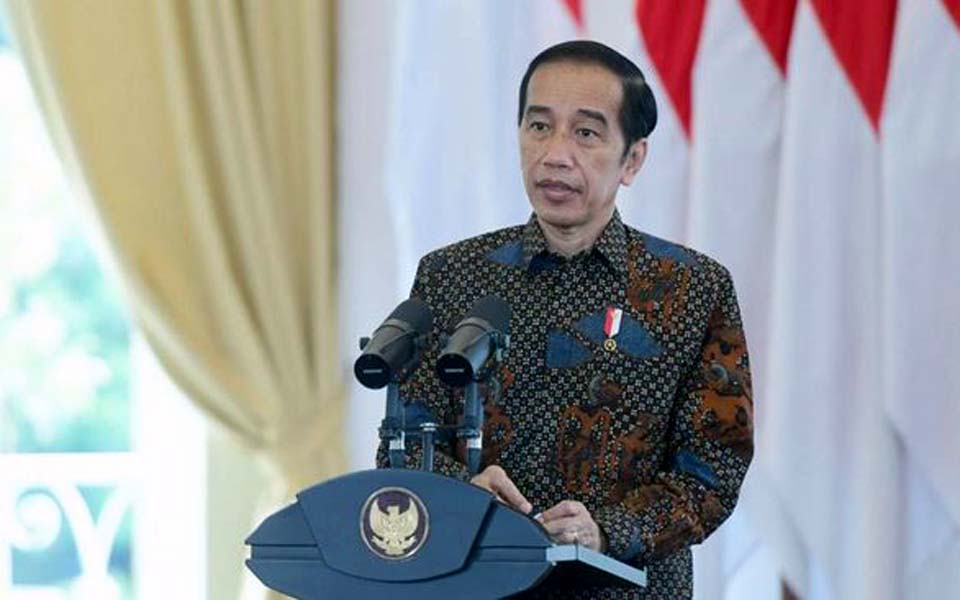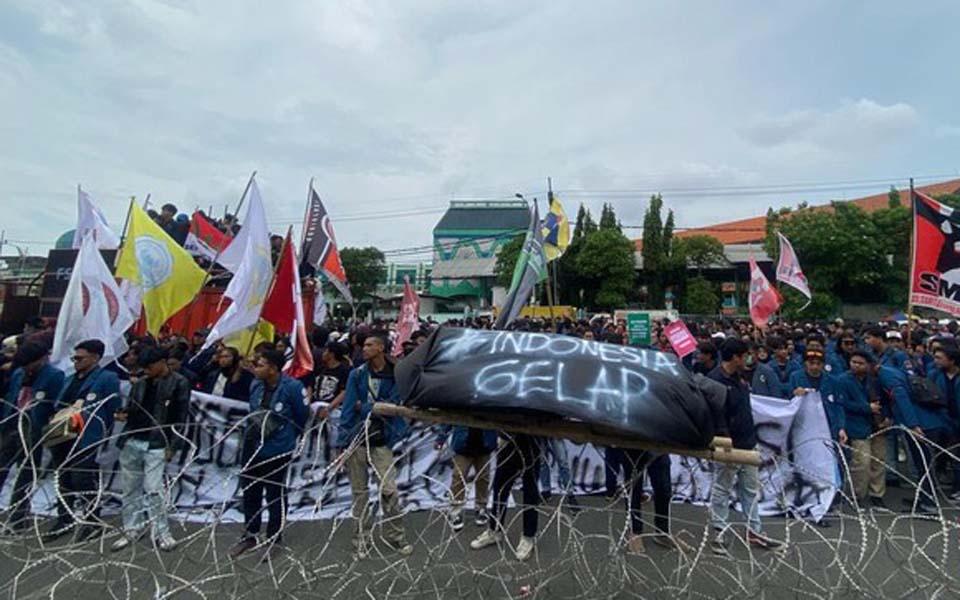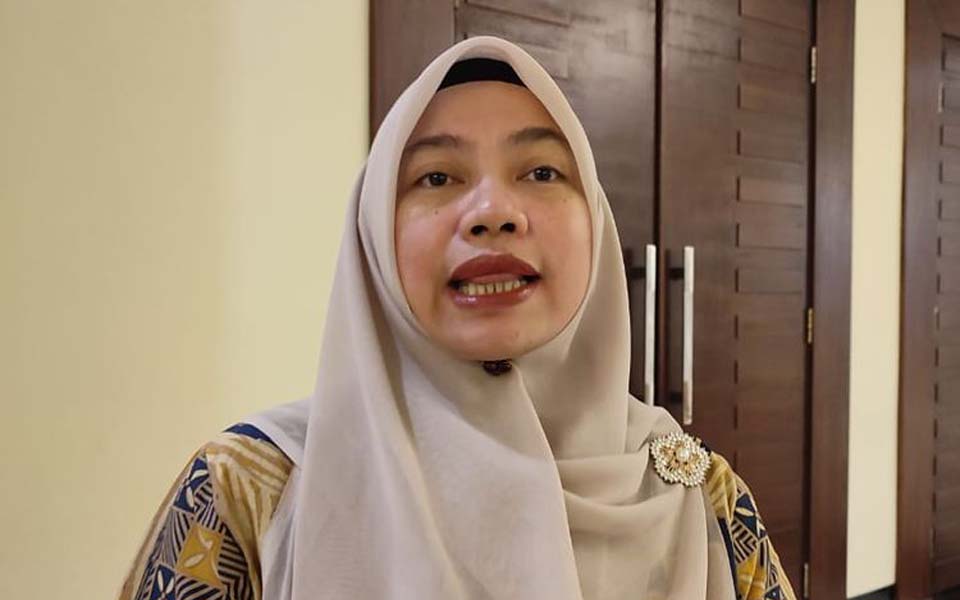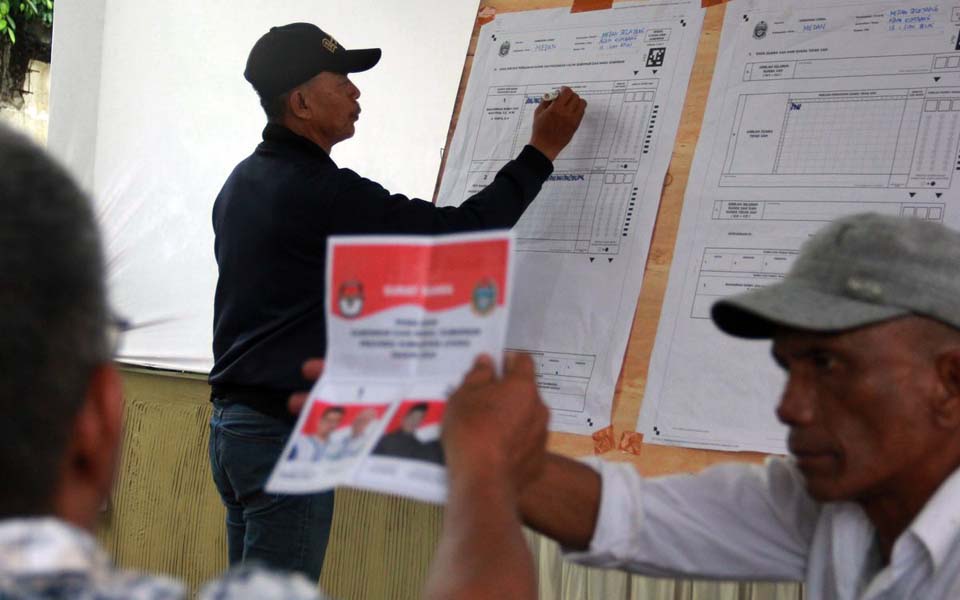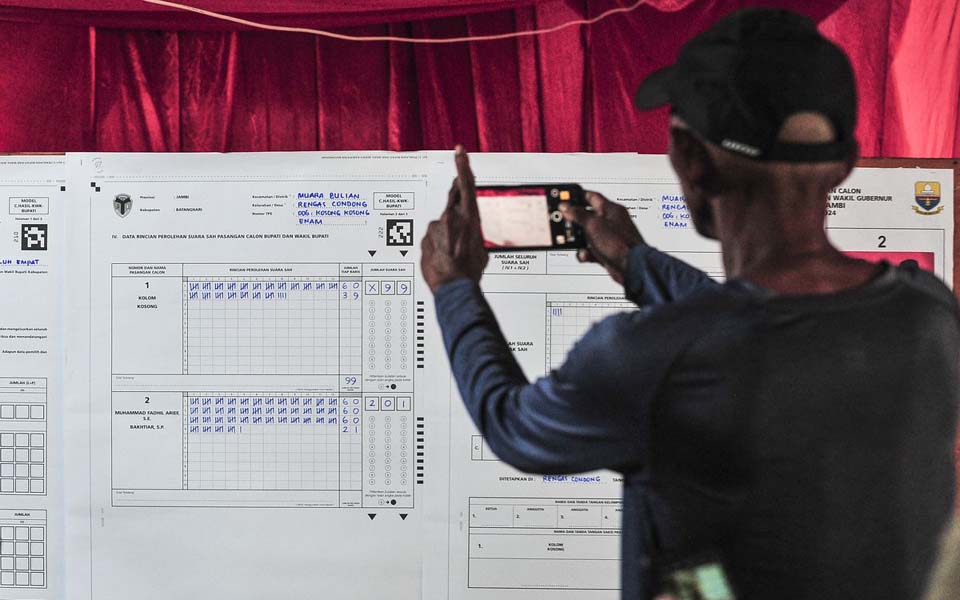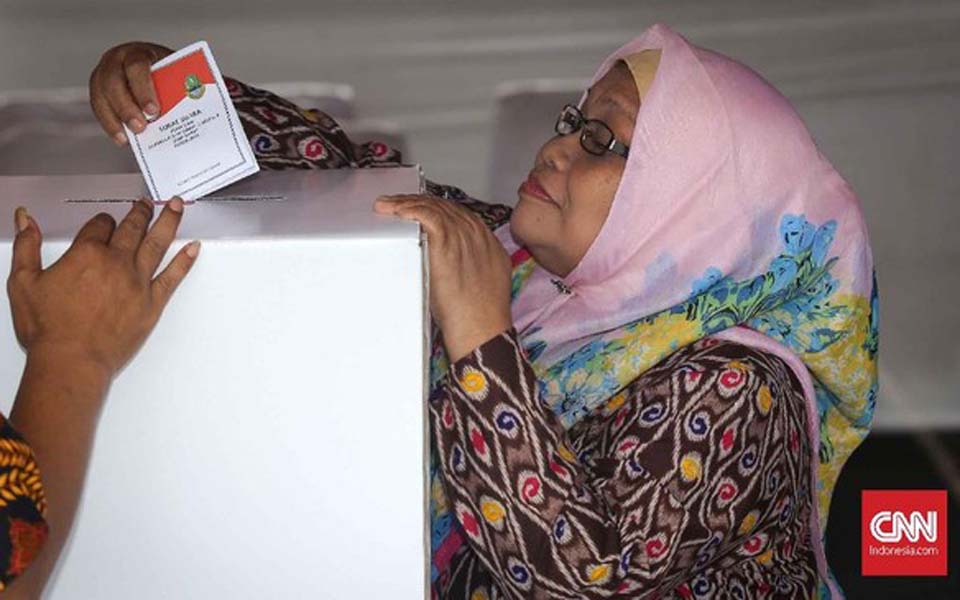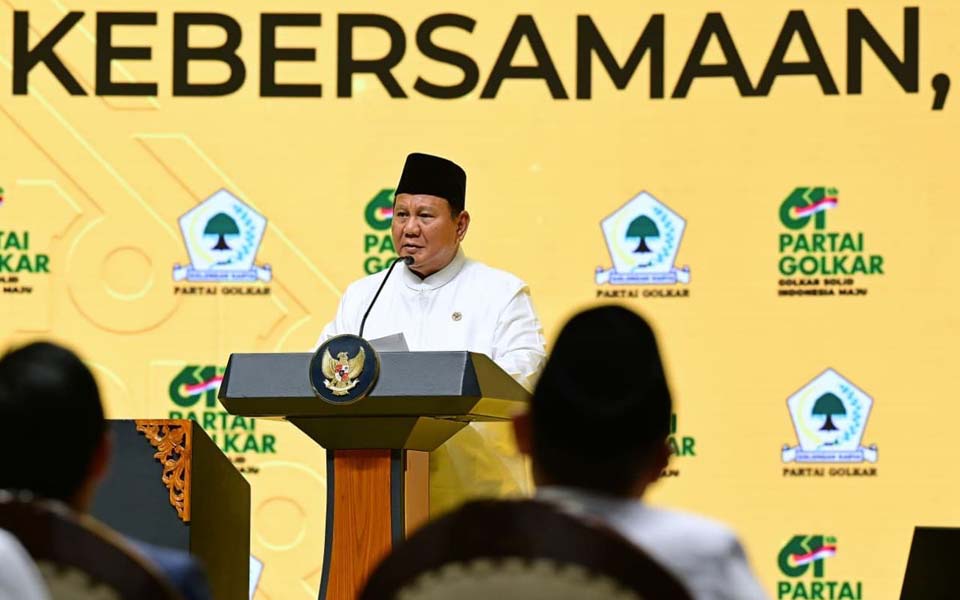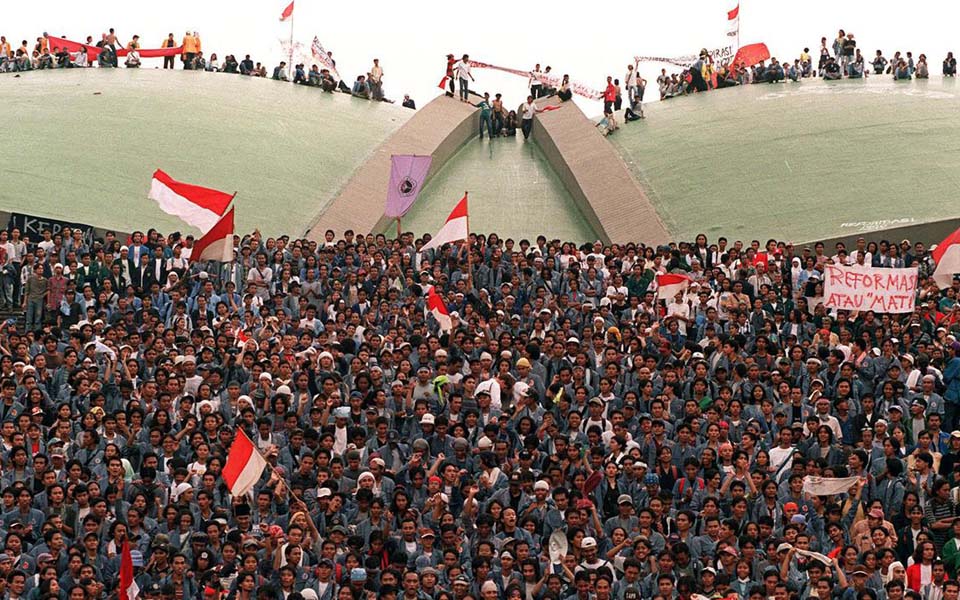Jakarta – Hundreds of regions across the country in 2022-2024 will be led by acting regional heads appointed by the central government. Experts say that this system will benefit people close to President Joko "Jokowi" Widodo and certain political parties in the lead up to the 2024 elections.
The selection of hundreds of acting regional heads by the government is a consequence of the elections law and the law on the election of regional heads (pilkada), where simultaneous provincial, regency and municipal elections throughout Indonesia will not be held until 2024.
Thus regional heads whose terms in office end in 2022 and 2023 will be replaced by acting heads selected by the central government.
Indonesian Institute of Science (LIPI) political researcher Wasisto Jati believes this system will benefit those in Widodo's circle because the president has a huge amount of authority to determine who will become acting regional heads.
He said the political parties could benefit if they can influence Widodo's choices because they can secure regional head positions without the bother of taking part in regional elections.
"Politically, the actors who will benefit are those in the government's national coalition because they can focus fully on the 2024 elections without having to make a big effort at the local level", said Jati when contacted by CNN Indonesia on Tuesday March 16.
Jati said that this system will impact on who wins the 2024 elections because the political parties will be in a better position if they succeed in controlling the leadership of the regions before this.
Jati is of the view that Widodo's ruling Indonesian Democratic Party of Struggle (PDI-P) will be the ones who will benefit most in the lead up to 2024 because the party is closer to Widodo than the other political parties.
"I think the PDI-P in particular will benefit most from this policy compared with other coalition party members. Because several strategic regions that will be affected are regions with a large swing vote", he said.
In total, there will be 271 regions led by acting regional heads. As many as 101 regional heads who came out of the 2017 regional elections will end their term in office in 2022, and 170 regional heads from the 2018 regional elections will end their terms in office in 2023.
There will be a total of 27 governors whose terms will end; seven in 2022 and 17 in 2023. The names of acting governors to replace them will be submitted by the Homes Affairs Ministry then directly selected by President Widodo.
In the case of regents and mayors meanwhile, they will be submitted by the governors and selected by the Home Affairs Ministry.
"For governors, in accordance with our laws it will be up to the president. Perhaps the president will also establish a TPA, involving other officials as a final assessment team which has been used in the past to make a determination. Because the terms in office will be quite long", said Home Affairs Minister Tito Karnavian during a public hearing with the House of Representatives (DPR) Commission II at the parliamentary complex in Jakarta on Monday March 15.
When contacted separately, Andalas University political observer Asrinaldi believes that the appointment of regional heads will be very much politicised because this will be a determining factor in 2024.
He suspects that each political party will try to influence Widodo's decisions in determining the acting heads. According to Asrinaldi, the struggle between competing political interests will be sharp in regions which are a big source of votes such as the provinces in Java island.
"I think these positions [acting regional heads] will primarily benefit legislative and presidential [candidates]. Attention needs to be given to who holds the post of governor, I thing the parties will fight it out there", said Asrinaldi when contacted by CNN Indonesia on Tuesday.
Election monitoring group the Association for Elections and Democracy (Perludem) Executive Director Khoirunnisa Agustyati said she regrets the decision by the government and the DPR to cancel the proposed revisions to the election law.
The woman, known affectionately as Ninis, explained that the existing law is undemocratic because regional heads will not be directly elected by the people. It would be a different matter if the election law had been revised and regional elections scheduled for 2022 and 2023, not just in 2024 as stipulated under the current law.
"These [positions] will be filled by regional heads appointed by the government. If the question is, is this allowed or not, then the space exists. But which is more democratic. Being elected by the people of course", said Agustyati when contacted by CNN Indonesia on Tuesday.
At the same time, acting regional heads will also have limited authority. Article 132A of Government Regulation Number 49/2008 contains a number of restrictions on the powers held by acting regional heads.
Acting heads are prohibited from reshuffling the positions of civil servants, cancelling or issuing permits which have already been issued by previous regional heads, making policies related to regional decentralisation and policies which conflict with the administrative organisation and programs of previous regional heads.
"We should return to the government's argument when it held the 2020 pilkada [that the elections should go ahead], we're still in the midst of the Covid-19 pandemic, there should be definitive regional heads who are directly elected, who have the legitimacy to discuss budgets, bylaws and so on", she said.
Agustyati is of the view that the election law should be revised because if not, there will be no other democratic options.
In addition to this, the existing laws forces Indonesia to hold presidential, legislative and regional elections in the same year which burdens election organisers, voters and the political parties.
"We have an opportunity, if we want to have a pilkada, we can. It just needs a decision to normalise the pilkada schedule", said Agustyati.
"[Revive] the earlier spirit, the spirit of regional autonomy, the spirit of the ordinary people directly electing regional heads", she said. (dhf/bmw)
Notes
Earlier this month several political parties proposed amending the election law to allow regional elections to be held in 2022 and 2023. This was opposed by the government on health grounds – the very argument the government dismissed in the face of widespread public opposition to the 2020 regional elections. Since then however, the proposal appears to have been dropped and revisions to the law have since been removed from the 2021 priority National Legislation Program.
[Translated by James Balowski. The original title of the article was "Siapa Untung Pj Gubernur Dipilih Jokowi Jelang 2024".]





